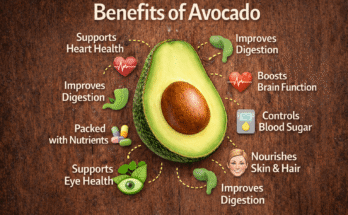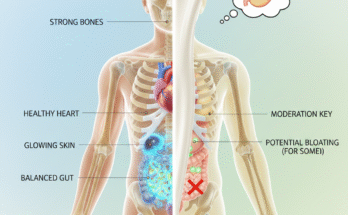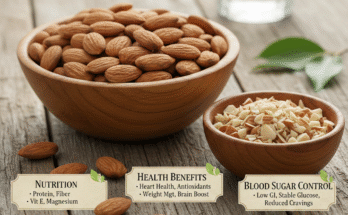How to tackle various health issues
Health issues ?
Lifestyle diseases and other health conditions can be managed by eating a healthy natural diet and following an exercise regime. It is, therefore, important to know how one can modify one’s diet and lifestyle to manage these diseases and conditions.
Tackle diabetes health issues
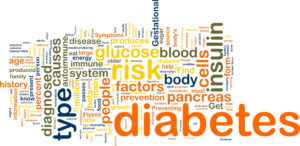
Be active
A person who is active can keep a watch on his weight and with that also keep a check on increasing sugar levels. Physical activity lowers sugar levels and increases insulin sensitivity.
Consume plenty of fibre
Foods high in fibre include fruits, vegetables, beans, whole grains, nuts and seeds. Fibre is roughage and controls the blood sugar levels.
Eat whole grains
Whole grains can reduce the risk of diabetes and maintain the sugar levels. Replace refined foods with whole and unrefined foods e.g. white bread, made with refined flour can be replaced by multi-grain bread and mixed flour.
Keep a check on your weight
An ideal weight improves overall health. Diabetics need a balance of diet and exercise.
Make healthier choices and avoid fad diets
Excessive fats are a strict no-no. You must have small quantities of fat for absorption of fat-soluble vitamins. Olive oil is a good choice.
Say no to excess salt
Adding salt at the table should be avoided. Try pepper or other herbs and spices.
Avoid artificial sweeteners
Our body’s need for sugar is fulfilled by naturally-available sugars in foods, so as far as possible avoid artificial sweeteners.
Reduce intake of red meat
Lean more towards a vegetarian diet. Eggs and fish should be thrice a week.
Choose the correct foods
Some foods help in controlling the blood sugar levels – bitter gourds, fenugreek seeds, garlic, flax seeds and cinnamon help in lowering the blood sugar.
How to tackle obesity health issue

1. Avoid fats. Eat low-fat foods. Olive oil is a good cooking medium.
2. Choose roasted and steamed foods over deep-fried foods.
3. Plan a low-calorie diet, which prevents calories from accumulating in the form of fat.
4. Eat complex carbohydrates like whole grain foods, fruits and vegetables. They also add fibre to the diet.
5. Eat good-quality protein as it helps keep muscles fit and toned.
6. Drink plenty of water, and have fluids like soups and vegetable juices.
7. Exercise regularly.
8. Avoid stress and have a good sleep.
9. Choose the correct foods. Examples: beans, nuts, low-fat dairy products, citrus fruits and green vegetables.
How to tackle heart disease health issues

1. Have green leafy vegetables like spinach and broccoli.
2. Have more of foods with both soluble fibre and insoluble fibre. Vegetables are a good source.
3. Have fruits like apples, grapes, oranges, strawberries, papaya, mango, banana, kiwi, amla and apricots.
4. Have vegetables rich in carotenoids. Examples: carrots, pumpkins and tomatoes.
5. Have beans as they are a rich source of proteins. Soya beans and tofu help to reduce the ‘bad cholesterol’ and thereby reduce the risk of heart disease.
6. Have green tea as it contains polyphenols which reduce the risk of heart disease.
7. Have salmon as it is high in omega-3 fatty acids. It lowers LDL or the bad cholesterol.
Be sure to check out the best cardiologist in your area to ensure you receive the best treatment. If you’re in UK for example, than i suggest you one of the best cardiologists in London you can find is Dr Boon Lim.
How to tackle anaemia health issues

1. Include cauliflower greens, leaves of beetroot and radish in vegetable preparations.
2. Include liver, lean meats, fish and poultry in your diet.
3. Include beans, whole grains, cereals, leafy vegetables, dried fruits and nuts in your diet.
How to tackle digestive health issues
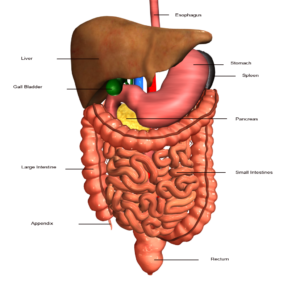
Acidity digestive problems
1. Avoid erratic working hours. Erratic schedules or a lack of fixed routines play havoc with regular mealtimes, enhancing acidity.
2. Avoid the wrong foods. Sudden hunger pangs can make anyone reach out for fast foods. These worsen acidity.
3. Be active. Lack of physical activity leads to slower digestion of food.a
4. Be aware of the various types of foods. Ignorance about healthier alternatives aggravates the condition. Fried foods, biscuits and soft drinks, though easily available, are best avoided .
Constipation digestive problems
1. Laxatives and enemas provide only a temporary solution.
2. Plan a high-fibre diet. Include fruits, vegetables and whole grains in your diet for easy bowl movement.
3. Avoid spicily and deep-fried foods.
How to tackle thyroid health issues

Hyperthyroid problems
1. Use fats and sugar sparingly.
2. Add fibre to the diet.
3. Till the hyperthyroid condition is stabilised eat a high-protein diet.
Hypothyroid problems
1. Have natural foods, whole grains, lots of fruits and vegetables, seafood and other lean proteins and nuts.
2. Consume high fibre foods. They help in losing weight as they give a feeling of fullness.
3. Beans, whole grains and their products like oatmeal and muesli have plenty of fibre.
4. Frequent small meals are recommended. Mini-meals will help to increase the metabolism that alters in hypothyroid patients. One should keep these meals around 300 calories so that weight reduction is also possible.
5. Water intake should be increased. O Avoid cabbage, cauliflower, kale, spinach, peaches, pears and radishes as they aggravate goitre.
How to tackle excessive cholesterol health issues

1. Include beans in all forms- dry, cooked and canned. Also, have lentils and peas. These are low in
fat and have a low glycemic index.
2. Have all soya products, soya granules, milk, nuggets, and tofu. They are rich in dietary fibre protective nutrients including minerals and B vitamins. to Adopt olive oil.
3. Adopt Olive oil is rich in monounsaturated fatty acids and Vitamin E. Olive and its products promote the reduction of bad cholesterol and the increase of good cholesterol.
4. Have fat-free or low-fat dairy products. Low-fat milk, fat-free milk, and skimmed milk yogurt are high in calcium, which is essential for the smooth functioning of the heart and preventing osteoporosis.
5. Have natural antioxidants. Fruits and vegetables help to lower cholesterol levels, but particularly Vitamin C and beta-carotene are more helpful. Vitamin C-rich foods include all citrus- fruits, berries, guavas, the entire cabbage family as well as capsicums. Beta-carotene-rich foods include dark yellow-orange fruits and vegetables, and all green leafy vegetables.
6. Have garlic and other members of Allium family like spring onions and onion.
7. Whole foods and fibre are essential. Whole grains, unsifted flour and unprocessed grains are rich in Vitamin B, minerals and dietary fibre and low in fat and cholesterol. Eat oats or muesli daily to keep a check on the cholesterol.
8. Omega-3 is helpful. People who eat omega-3-rich fish three or more times a week are at a lower risk of heart disease. The best fish are salmon, tuna, trout and sardines:Other foods rich in omega-3 fatty acids are flax seeds, walnuts and eggs.
9. Fenugreek seeds can help. Have them either powdered or soaked or have sprouted fenugreek seeds.
Foods That Protect From Hair Fall
